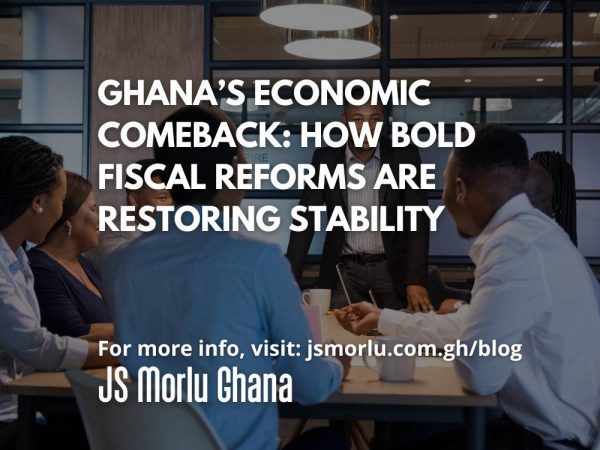With the Ghanaian cedi showing signs of recovery against the US dollar, this article explores how bold fiscal reforms and IMF-backed policies are driving Ghana’s economic turnaround.
What the IMF’s Fourth Review Says About Ghana’s Path to Resilience and What Other Economies Can Learn From It

A Global Spotlight on Ghana’s Fiscal Turnaround
In its Fourth Review under the Extended Credit Facility (ECF) Arrangement, the International Monetary Fund (IMF) has expressed strong support for Ghana’s recent fiscal and monetary actions. The Fund commended President Mahama’s government for its “bold corrective measures,” which are helping to realign the country’s economic trajectory, boost resilience, and foster more inclusive growth.
This positive outlook is anchored in a series of reform efforts, made more effective by an improved external position and clearer policy direction. It offers a timely example of how policy credibility and international cooperation can reinforce recovery in developing economies.
The Fix: Fiscal Reforms & Structural Adjustments
The IMF praised the government for passing a 2025 national budget aligned with ECF objectives and introducing a strengthened fiscal responsibility framework. These steps reflect a broader commitment to restoring fiscal discipline and correcting the imbalances that previously derailed Ghana’s progress.
“Staying the course of fiscal adjustment and completing the debt restructuring are key to ensuring fiscal sustainability,” the IMF emphasized.
Key areas of focus include:
- Debt restructuring to reduce long-term financial vulnerabilities
- Domestic revenue mobilization to expand fiscal capacity
- Prudent expenditure management, with a focus on development and social protection
Rather than adopting broad austerity measures, the strategy emphasizes efficient reallocation, cutting non-priority spending while safeguarding essential services and investment.

Tax Efficiency + Smart Spending = Resilience
Fiscal sustainability depends not just on tightening the purse strings but also on improving how funds are raised and allocated. To this end, the IMF highlighted the importance of:
- Modernizing tax administration
- Improving expenditure controls
- Enhancing state-owned enterprise (SOE) efficiency
- Resolving arrears in the energy sector, which pose systemic risks
The reforms target long-term stability, with a focus on institutional efficiency and better public financial management.
Inflation Control & Currency Management
On the monetary side, the Bank of Ghana has been urged to maintain a tight policy stance until inflation stabilizes. The IMF also recommended:
- Limiting intervention in the foreign exchange market
- Adopting a formal FX intervention policy
- Increasing exchange rate flexibility to better absorb external shocks
These measures aim to restore investor confidence, improve market transparency, and safeguard international reserves.

Financial Sector Stability: Progress and Pending Challenges
Ghana has taken steps to address undercapitalized banks, but the IMF notes that deeper structural reforms are still needed to ensure full financial sector stability.
Priorities include:
- Finalizing a reform strategy for state-owned banks
- Implementing contingency plans for weak banks unable to recapitalize
- Strengthening the crisis management framework
- Improving financial sector safety nets, especially for specialized deposit-taking institutions
Progress has been made, but vigilance remains critical.
The Big Picture: Resilience Is the New Growth
Ghana’s experience underscores a broader shift in global economic policy: resilience is now as important as growth. By combining fiscal discipline with structural reforms, the country is not only regaining macroeconomic stability but also building a stronger foundation for inclusive development.
While challenges remain particularly in banking and energy, Ghana’s approach serves as a case study in how carefully calibrated policies, transparent institutions, and international cooperation can realign a struggling economy with long-term development goals.
As the IMF continues to monitor the progress, Ghana’s path may offer valuable insights for other nations navigating similar fiscal and monetary complexities in today’s interconnected financial landscape.
